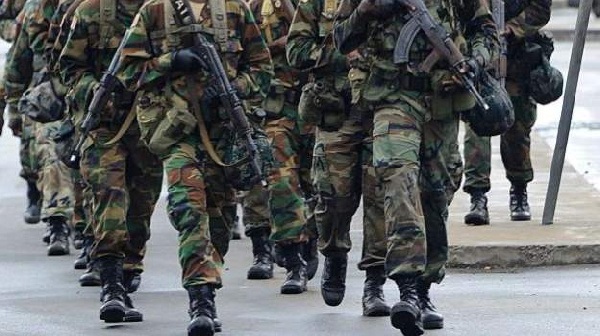Mali’s President Ibrahim Boubacar Keita and Prime Minister Boubou Cisse were detained by mutinying soldiers on Tuesday night, worsening a national crisis in a country already grappling with a jihadist insurgency and mass protests.
Other top government officials were also taken into custody.
What happened?
Earlier on Tuesday, soldiers took up arms at the military base in Kati, a town 15 kilometers (nine miles) from Bamako, and began arresting senior military officers and civil servants.
DW learned earlier on Tuesday that several high-ranking politicians and officials were arrested, including the Minister of Finance Abdoulaye Daffe and the chief of staff of the National Guard. State broadcaster ORTM was evacuated and later went offline, reported Reuters.
What has been the reaction?
The chairperson of the African Union Commission, Moussa Faki Mahamat, tweeted that he strongly condemned the arrest of Keita and Cisse and called for their release.
Mali’s President Ibrahim Boubacar Keita and Prime Minister Boubou Cisse were detained by mutinying soldiers on Tuesday night, worsening a national crisis in a country already grappling with a jihadist insurgency and mass protests.
Other top government officials were also taken into custody.
What happened?
Earlier on Tuesday, soldiers took up arms at the military base in Kati, a town 15 kilometers (nine miles) from Bamako, and began arresting senior military officers and civil servants.
DW learned earlier on Tuesday that several high-ranking politicians and officials were arrested, including the Minister of Finance Abdoulaye Daffe and the chief of staff of the National Guard. State broadcaster ORTM was evacuated and later went offline, reported Reuters.
What has been the reaction?
The chairperson of the African Union Commission, Moussa Faki Mahamat, tweeted that he strongly condemned the arrest of Keita and Cisse and called for their release.
The Economic Community of West African States (ECOWAS) earlier on Tuesday said soldiers had launched a “mutiny” and urged them to immediately return to their barracks.
The French Foreign Ministry condemned the mutiny “in the strongest terms” and urged the Mali military to return to barracks. Over 5,000 French troops are stationed across the Sahel region that includes Mali to counter jihadi violence.
A ‘volatile’ situation
DW correspondent Mahamadou Kane, who is in Bamako, ahead of the arrests earlier on Tuesday, said: “More and more people are gathering at Independence Square in support of the government-critical M5-RFP movement that wants to see the resignation of the president and the prime minister Boubou Cisse. They seem to support the military but it remains unclear what the demands of the military are.”
Anti-government protests linked to M5 began in July over what they say are failures to restore security and deal with corruption. At least 14 people have been killed in the recent unrest, according to the United Nations and human rights activists.
Coup or mutiny? Both could aid the government
Etienne Fakaba Sissoko, head of Mali’s Center for Political, Economic and Social Research and Analysis, told DW that the move would help the government, irregardless of whether there was a coup or a mutiny — as neither would likely have the full backing and would cause splits in the military and the public. The confusion caused by this could be a “lifeline” to the regime, invoking it to restore constitutional legality and legitimacy. “In this way, the government could gain international support that could then demand an end to attempts at destabilization.”
Kati saw a mutiny in 2012 that led to a coup d’etat that ousted then-President Amadou Toumani Toure and contributed to the fall of northern Mali into the hands of jihadi militants. DW


